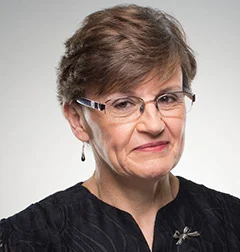
Wills Newsletter – November 2014
Published on December 4, 2014 by Hanaan Indari, Josephine Heesh and Joshua Dale
Welcome to the first issue of our Wills, Estates, Trusts and Superannuation Law Newsletter.
We aim with this Newsletter to provide you with up to date developments in the law of Wills, Estates, Trusts & Superannuation Law as well as to share with you information on these areas of law.
Our first issue is being sent to you as an invitation to subscribe to subsequent Newsletters. If you wish to subscribe, follow the link below:
In this introductory issue we provide you with information on:
- Ruling from the grave, how far can you go? We discuss a recent case involving the wishes of a deceased father that his children convert to Catholicism as a pre-condition of receiving their respective gifts.
- Whether there is any recognition of the rights of de facto spouses of deceased persons under the Succession Act 2006 (NSW). We report on a recent case discussion an application by a de facto spouse for a family provision order.
- The importance of careful Will drafting to ensure that your wishes are carried out. Will Kits: What is the real cost? Are you saving money using a Will Kit?
- The implications on your estate planning of getting (re-)married.
We hope you enjoy our first issue and we look forward to providing you with further updates in this interesting area of law in future.
The Carroll & O’Dea Wills, Estates, Trusts and Superannuation Law Team.
‘Father denies children inheritance because they did not become Catholics’
A recent decision in the Supreme Court of New South Wales by Justice Kunc Carolyn Margaret Hickin v Robyn – Patricia Carroll & Ors (No.2) [2014] NSW SC1059 considered the case of where a deceased father wrote in his will that his adult children were not to receive any inheritance unless they met two conditions:
- attend his funeral; and
- become Catholics within three months of the date of his death (which involved being Baptised as Catholics).
The deceased died in April 2012.
His children attended the funeral but they did not become Catholics and challenged the condition in the New South Wales Supreme Court in a bid to still receive their share of his estate. The deceased’s motivation in writing the will was that he never approved of his children becoming Jehovah’s Witness.
The court heard that the deceased did not raise his children as Catholics, nor did he or they attend church services when they were young and they did not enrol them in Catholic schools. Despite this, the judge ruled that the deceased was entitled to place such conditions in his Will. He stated that the conditions, particularly the Baptism condition, are not uncertain, impossible or contrary to public policies. The children only complied with the attendance condition which is insufficient for them to take their benefits under the gifts.
The judge ruled that the portions of the deceased’s estate that would have gone to the children under the gifts now fell to be divided amongst the other residuary beneficiaries in accordance with the alternative gifts.
“A formally binding commitment to mutual support”?: a consideration of a de facto partner’s application for a family provision order by Hallen J in Lawrence v Martin [2014] NSWSC 1506
This was a recent decision of Hallen J in the New South Wales Supreme Court (Equity Division) concerning a family provision claim brought by a de facto partner under Part 2 of the Succession Act 2006 (NSW) (“the Act”). The decision highlights the extent of Court power to interfere with the testamentary will of a deceased in family provisions claims by surviving de facto spouses.
The deceased passed away on a date between 31 May and 1 June 2013. He had previously been married until September 1999 when his marriage was dissolved.
The deceased left a will made on 2 June 1978 (“the Will”), leaving the whole of his estate to his then wife, but with provision that if she predeceased him, the estate would pass to his children which survive him and attain the age of 20 years.
By operation of Section 15A of the former Wills Probate and Administration Act 1898 (NSW), (replaced Section 13 by the Succession Act 2006 (NSW)) which applies to wills made before 1 March 2008, the subsequent dissolution of the deceased’s marriage meant that the Will took effect as though the former spouse had predeceased the testator. The family provision claim was therefore brought against the deceased’s two sons who were the beneficiaries and administrators of the estate. The Applicant making the claim, was the de facto partner of the deceased who had been living with him for some sixteen-and-a-half years prior to his death.
Whilst, as in his previous family provisions decisions, Hallen J provides a very thorough discussion of the statutory scheme of the Act (paras 49-115), it is His Honour’s application of the legal principles to the de facto relationship context that is of particular note. For a good summary of the statutory scheme of the Act discussed by Hallen J in another case, see our article on Shakespeare v Flynn.
Hallen J considered the first requirement for a family provision order under Section 59(1)(a), namely which provides that the person in whose favour a family provision order may be made must be an eligible person with regard to Section 57 of the Act.
At the outset, Hallen J indicated that that of the Applicant was an eligible person pursuant to Section 57(1)(b) which relevantly provides that an eligible person includes in the list of persons eligible to apply for a family provision order:
“a person with whom the deceased was living in a de facto relationship at the time of the deceased person’s death”.
Accordingly, Section 59(1)(a) was satisfied and the de facto spouse was entitled to make the claim.
The remaining consideration for the Court was under Section 59(1)(c), whether adequate provision for the proper maintenance, education or advancement in life of the applicant has not been made by the Will of the deceased.
In making the determination about eligibility of a person to bring a claim, whether to make a family provision order as well as the nature of any such order, the Court may have regard to matters enumerated in Section 60(2) of the Act. For the full list of factors see here.
In considering the application of the factors in Section 60(2) of the Act to the de facto Applicant, Hallen J observed that:
“whilst the distinction between married and de facto relationships has narrowed considerably over time, there also remains binding authority which gives greater weight to the claims of parties who have entered “a formal and binding commitment to mutual support””(at 140).
But His Honour also noted that these principles as above are not elevated into rules of law when applying the statutory considerations which require a case by case approach (at 143). His Honour then proceeded to make the following findings in relation to some of the relevant statutory factors available to him for consideration under Section 60(2):
“(a) [Was there] any family or other relationship between the applicant and the deceased person, including the nature and duration of the relationship?” (S60(2)(a))
Hallen J noted at the time of the deceased’s death, the two had been in a de facto relationship and living together for some 16-and-a-half years. The two had made mutual decisions in binding their lives together such as purchasing a home as joint tenants and contributing their joint expense and travelling together extensively both within Australia and overseas.
When, in his later years, the deceased had suffered from ill health, the Applicant displayed significant care and support, taking three months off work to provide care. There was therefore no indication that the relationship would not continue indefinitely had the deceased remained alive.
“(b) the nature and extent of any obligations or responsibilities owed by the deceased person to the applicant…” (S60(2)(b))
Once again, there is no statutory definition is provided for the above terms: “obligations” or “responsibilities”, but Hallen J indicated there is clear recognition of the obligation and responsibility towards a de facto as for example in Forsyth v Sinclair [2010] VSCA 147 where the de facto partner was living with the deceased at the time of death as was the case here.
“(h) any contribution (whether financial or otherwise) by the applicant to the acquisition, conservation and improvement of the estate of the deceased person or to the welfare of the deceased person or the deceased person’s family, whether made before or after the deceased person’s death, for which adequate consideration (not including any pension or other benefit) was not received, by the applicant” (S60(2)(h))
This has long been regarded as a significant factor, and Hallen J noted that the care and companionship provided by the Applicant to the deceased as well as the joint financial acquisition of their home were satisfactory to indicate a significant contribution by the Applicant to the welfare of the deceased, notwithstanding that there was also a level of financial independence with respect to separate individual bank accounts and investment properties.
Taking into account all the above statutory factors as well as matters specific to the relationship, including the de facto nature of the relationship and the length and quality of the relationship, Hallen J determined that the deceased did not in his Will make adequate provision for the proper maintenance of the Applicant as his de facto partner.
Hallen J also mentioned that the fact that the Applicant was given no provision in the Will was highly relevant but not determinative of inadequacy, that is, a court will not automatically rule that inadequate provision has been made merely because a Will makes no provision at all.
At the same time, making some provision or a minor provision in the Will will of course also not be a bar to a family provision order being made upon a finding of inadequacy the gift made under a Will.
Accordingly Hallen J considered what provision ought to be made under Section 59(2) of the Act and ruled that the Applicant was to receive a lump sum of $350,000 paid out of the residuary estate. The net value of the residual estate which available for distribution was about $1,124,547. The Applicant therefore received approximately 32% of the distributable estate. In quantifying this sum, Hallen J pointed to the adequacy of this sum in repaying the debt on the Applicant’s real property, immediately reducing her monthly expenditure with the balance, if invested at about 3.5% per annum increasing her monthly income by some $935.
The successful claim by the Applicant provides a useful guide on the treatment of the family provision claim brought by a de facto partner under the Act. It also expands on the now familiar observation made in relation to family provisions claims, that given the extent of Court powers to alter and adjust the testator’s testamentary wishes, care must be taken in will-drafting to ensure all relationships of the testator are taken into account and attempt to make, as far as possible, an adequate provision so as to limit the likelihood of a redistribution following a successful family provision claim.
Patricia Monemvasitis, Kim Leontiev
For addition to your “To Do” list before getting (re-)married
John is single with one child to whom he intended to leave the entirety of his estate. In his later years he met a woman and later they married. John did not renew his will, not realising that getting married nullifies any will made prior to the marriage. He was married for 18 months before he passed away. For legal purposes, he has now died without a will and his testamentary intention to leave 100% of his estate to his son is now no longer valid. 100% of his estate will now go to his wife of 18 months and his son would have to bring court proceedings within 12 months under Section 58 of the Succession Act 2006 NSW to claim some share of estate which would be far less than intended. This case is a reminder that not only should you regularly update your Will but you should always review it when there is a change in your marital status or personal circumstances.
Will Kits: A warning on what might happen and what the money saved could cost you
Beware
David is the owner of extensive real estate exceeding $5 million in value. With the intention of saving money, David elected to purchase a will kit and drafted his own will. His will reads that essentially 80% of his estate would pass to his wife, to whom he was married for the last 6 years of his life, so that she could set up a charity in his name. The will had very little regard for his two children from a previous marriage, one of which suffered a significant disability.
Furthermore, due to the lack of clarity in the wording used in drafting his homemade will, there are also significant questions over what the will actually means which is now the subject of dispute and family provision claims under the Succession Act 2006 NSW.
The current proceedings are now in a state of flux where the intention to create a testamentary trust and charitable trust are in serious issue.
It is now likely that the provision of 80% of the estate to David’s wife for the purposes of establishing a charity have now given rise to the potential involvement of the Attorney-General, who has an interest in charitable donations.
As a result of the wording in the will being significantly unclear as to the will maker’s intentions, it is likely that the majority of the estate will now form the basis of family provision claims of interested parties at a significant cost to the estate and the testamentary intention of David which is now very unlikely to be carried out in light of those claims.
Had David received proper legal advice and if his will was written in clearer terms, the current litigation would most likely not have occurred.
Will you save money by using a DIY kit?
We have all heard of the common scenario, of DIY kits, such as DIY renovations, at the outset they seem cheaper and easier, but if you drill into a water or gas pipe, then you have to engage the professionals to rectify the situation, which will cost you more in the long run.
The same situation applies to Will Kits, whilst they may be cheaper and what seems “easier” to complete than seeing your lawyer, the implications of having an incorrectly drafted Will could be dire.
The most common problems that arise from Will Kits relate to a will maker’s lack of understanding of Succession Law, the formal requirements for ensuring the Will is valid and that the gifts in the Will do not fail.
Some issues which require care and specific drafting:
- Proper consideration as to the appointment of an executor and in particular the appointment of alternate executors. This should be someone that you trust.
- Whether the Will is correctly executed? In our experience, a Court may be lenient on this issue, but the cost and effort of resolving this discrepancy in Court is substantial.
- The difference between giving a gift to several beneficiaries as a joint tenancy or tenants in common. The right of survivorship in respect of a joint tenancy means that if one of those beneficiaries were to predecease the Will maker, then their share is redistributed amongst the remaining beneficiaries and not distributed to their children.
- Ensuring that particular gifts do not fail, such as if a child does not survive his or her parents leaving children, will those grandchildren take the share that their parent would have received?
- If the grandchildren are to receive a share in the estate, should a particular age be nominated for when they have access to that share, and the executor in the interim will hold such share on trust.
- Understanding that superannuation does not normally form part of the estate.
- Appreciating the implications of “leaving someone out” of your will. What rights do you have to challenge your will under the Succession Act 2006 (NSW). The cost of this costly litigation will be deducted from your estate assets and may leave your intended beneficiaries substantially less than is required to meet their needs.


